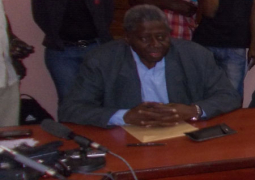As part of reviewing the economic contribution of copyright to the Gambian economy, stakeholders on Tuesday began a two-day workshop at Dunes Resort Hotel in Kotu.
Senior government officials from the Ministry of Tourism and Culture, representatives from the Tourism Board as well as the National Council for Arts and Culture (NCAC) were all in attendance.
The workshop was organised by the World Intellectual Property Organization (WIPO) in collaboration with the NCAC.
In her opening remarks, Fatou Mass Jobe-Njie, Minister of Tourism and Culture, said the event was the third technical workshop organised by WIPO under their country capacity building programme for The Gambia since 2006.
The move, she said, shows the strong commitment of the organization for the development of copyright in The Gambia.
According to the Tourism Minister, the workshop is both relevant and timely.
“It is a positive response to a priority request made by our government for the funding of a National Study, which is about to start on the Economic Role of Copyright and Related Rights Industries in The Gambia,” she said.
According to her, the study shall avail government and stakeholders with empirical data on the range, scale and economic potential of copyright industries in The Gambia for use in seeking technical and financial assistance from local and international partners.
Christopher M. Kalanji, Consultant of WIPO National Copyright Development, Economic Contribution and Performance of the Copyright Based industries, said the WIPO is a United Nations Specialized Agency and it is dedicated to develop a balanced and accessible international intellectual Property IP system, which rewards creativity, stimulates innovation and contributes to economic development while safeguarding the public interest.
Kalanji further revealed that WIPO was established in 1967 by the WIPO Convention and its headquarters is in Geneva, Switzerland.
He explained that copyright as a branch of intellectual property plays an important role in encouraging a dynamic creative culture, facilitating the return of value to creators so as to enable creators to lead a dignified economic existence and providing widespread, affordable access to content for the public.
For his part, Baba Ceesay, director of the NCAC, noted that the event is another milestone in the NCAC’s drive to secure a functioning copyright regime.
He said they have faced tremendous odds in achieving the objectives of the Copyright Act, which was passed by the National Assembly in 2004.
“It is also important to reiterate that this workshop is the prelude to an important study that is geared towards scientifically substantiating the contribution of copyright-based industries to the Gambian economy.”


